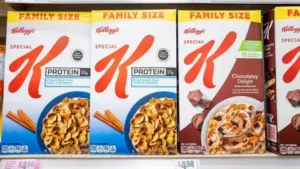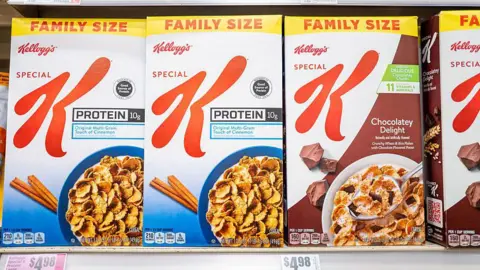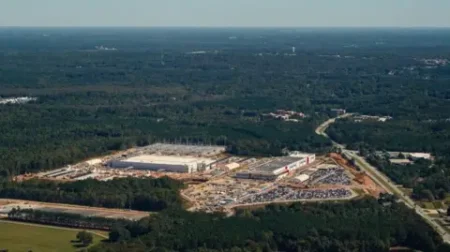Recently, shares in the renowned breakfast cereal manufacturer WK Kellogg experienced a significant boost, climbing over 50% in after-hours trading. This surge in stock value can be attributed to emerging reports suggesting that the Italian chocolate conglomerate Ferrero is engaging in advanced discussions to acquire Kellogg for approximately $3 billion, which translates to around £2.2 billion. The speculation surrounding this potential acquisition has been widely circulated by reputable financial outlets, including the Wall Street Journal and the Financial Times, heightening interest in both companies.
Ferrero, known for its beloved brands such as Ferrero Rocher and Kinder Chocolate, has been on an expansion spree in recent years. It successfully purchased Nestle’s confectionery division, among other food entities, indicating a strategic move to diversify and strengthen its market presence. As Ferrero appears to be on the cusp of consolidating its ownership of WK Kellogg, investors have responded enthusiastically, driving stock prices to new heights.
It is noteworthy that both WK Kellogg and Ferrero have not issued any comments regarding these acquisition discussions, leading to speculation and anticipation in the market. The reaction from shareholders points to the underlying concern regarding Kellogg’s financial health over recent years, making this acquisition appear particularly relevant in the context of Ferrero’s growth objectives.
In exploring the background of Kellogg, the company has faced various challenges in recent years. Following a considerable restructuring effort in 2023, WK Kellogg shifted its focus entirely on breakfast cereals. Despite these changes, the company has struggled to maintain profitable growth amid evolving consumer preferences, where there is a clear shift towards healthier options. This changing consumer behavior poses a substantial challenge for many food firms, Kellogg included.
Moreover, external pressures have further complicated Kellogg’s circumstances. During the Trump administration, regulatory policies advocating for healthier eating habits placed scrutiny on artificial coloring agents used in products such as Kellogg’s iconic Fruit Loops. In response to these pressures, Kellogg announced plans to remove synthetic colors from cereals specifically consumed in schools by the 2026-27 school year. However, the absence of a specified timeline concerning the removal of these artificial ingredients from products aimed at the general consumer market has raised concerns among health advocates and investors alike.
Kellogg’s founder, Will Keith Kellogg, is often celebrated as an innovator in the breakfast cereal industry and is widely recognized as the inventor of corn flakes. The historical significance attached to Kellogg adds another layer of complexity to the company’s potential acquisition by Ferrero, as it carries the heritage of breakfast cereals that many consumers have cherished over the decades.
In conclusion, the positive market reaction to the prospective acquisition of WK Kellogg by Ferrero signifies not just a pivotal point in the future of Kellogg but also reflects the broader trends and pressures affecting the food industry. Companies in this sector are being compelled to adapt rapidly to shifting consumer preferences and regulatory demands for healthier products. As the situation continues to unfold, stakeholders in both companies, and the broader market, are keenly monitoring developments related to this potential acquisition and its implications for the future of breakfast cereals and confectionery products.











